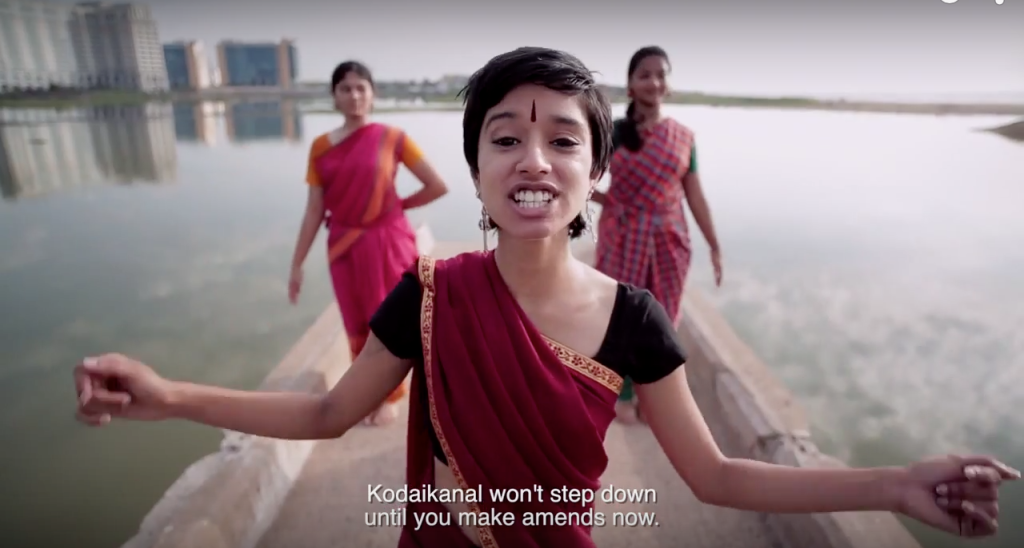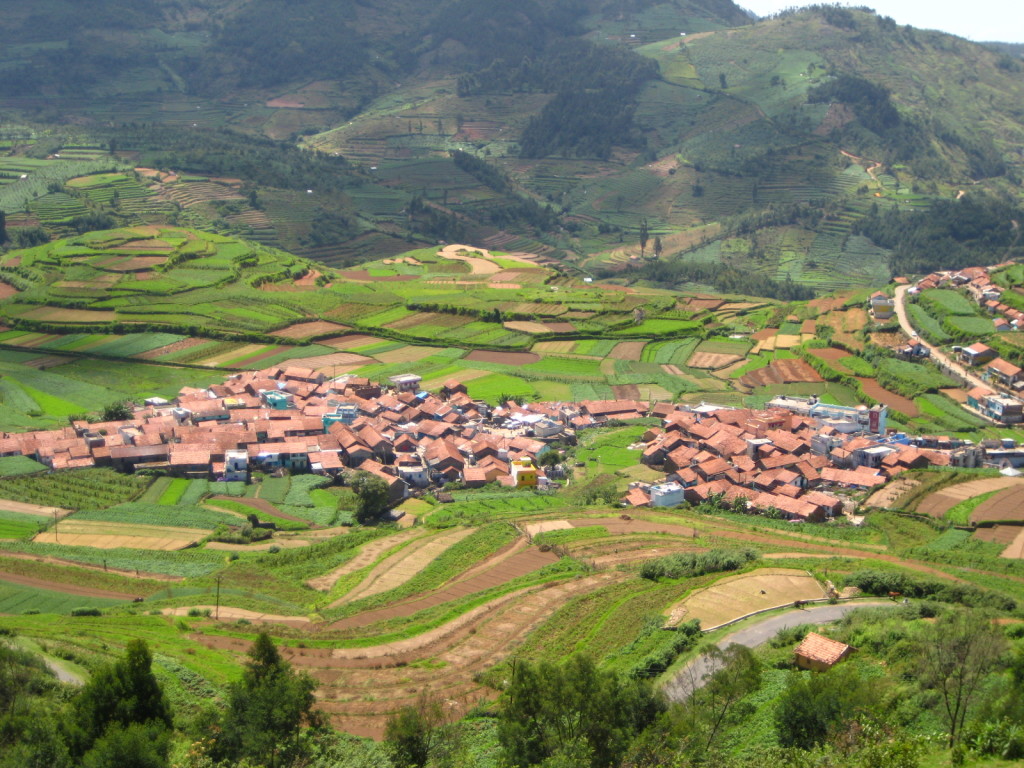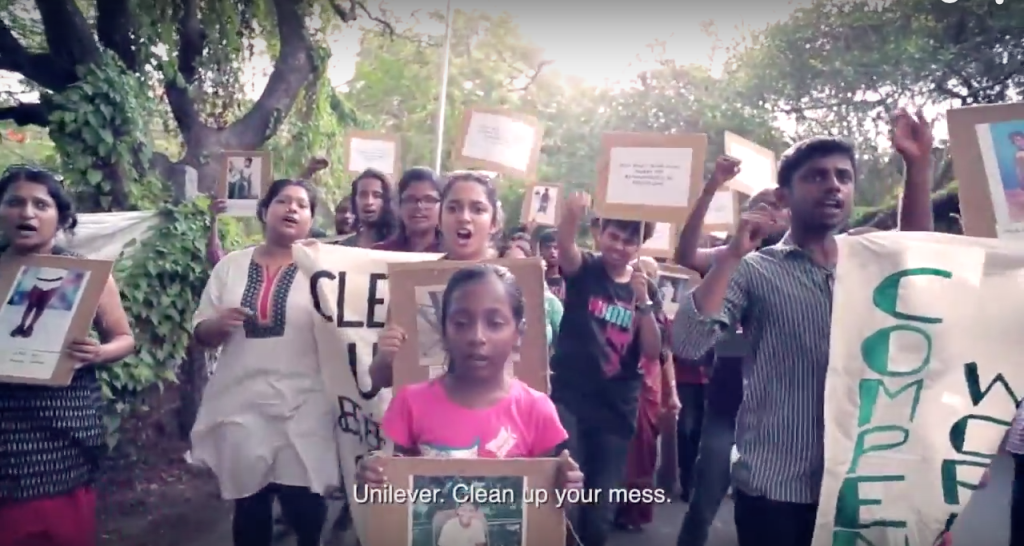CHENNAI – A rap addressing corporate pollution in the otherwise picturesque town of Kodaikanal in southern India is making an impact far beyond either the city’s or the country’s frontiers.

Sofia Ashraf rejuvenated an Indian city’s struggle against Unilever for reparations over mercury poisoning stemming from a thermometer factory once owned by the Indian branch of the corporation (Youtube.)
In the ten days since Sofia Ashraf’s protest video was uploaded to YouTube, it has gained over 2 million views. The video trended for four continuous days on Facebook. Two major petitions addressing Unilever’s CEO Paul Polman have collected over 110,000 signatures. In fact, since Ashraf’s rap was put online, the issue of mercury pollution surrounding the now decommissioned factory has gained more media support than in the past 14 years that activists have been working on the issue, combined.
Ashraf, who until recently worked for a marketing agency, was approached by The Vettiver Collective, an activist group, to create a protest song dealing with the region’s mercury poisoning issue. The rapper noted that she was at first skeptical about the claims, and undertook research before committing to the cause.
“Their claims seem to be quite different from the reports Unilever was releasing. Only after some detailed research did I see that HUL [Hindustan Unilever Limited] was resorting to misinformation in order to save face… I think what convinced me the most were workers’ testimonies.”

The area surrounding Kodaikanal is well known throughout India as both a peaceful retreat and an agricultural hub (Wikimedia Commons.)
Channeling her art for activism is not new to this rapper. In 2009 Sofia Ashraf founded the group Peter Kapy, which performed a series of nonprofit concerts in the city of Chennai promoting religious understanding. She was described then as shy, but any timidity on her part seems now to have been left far behind.
In an interview with The Guardian, Ashraf discussed the overwhelming success of her Unilever protest song.
“Everyone was so passionate about the cause. You could pick out anyone in the video and they would know about it, even the children,” she said. “That’s what made the video work. The protest was real, the angst was real.”

Children, former Unilever workers, dancers, and even Ashraf and the cinematography team developed the video on a purely volunteer basis. Filming took only one day (Youtube.)
Channeling that angst into the viral song was Ashraf’s doing. “After working in an ad agency, I developed a better understanding of how to use popular culture to reach a wider audience,” the rapper said.
“So for ‘Kodaikanal Won’t’ I decided to piggyback on a popular song like Anaconda. It would attract Nicki Minaj fans, but also get the attention of those who hate her song.”
Minaj herself shared the video on Twitter, and the reception has indeed gone well beyond her own fans as the video has passed 2.3 million views.
— NICKI MINAJ (@NICKIMINAJ) August 1, 2015
For Sofia Ashraf, her newfound status as one of India’s most important activists came as a surprise.
“I’m not consciously trying to become a social activist rapper,” she said. “But everyone has a conscience, and I knew I had to do something.”
Unilever has put forth a press release on the mercury poisoning issue, stating that it began the process of reevaluating the soil Kodaikanal in 2010, but activists are hopeful that the pressure from video’s success will bring some real action. At least the pressure is on now.
